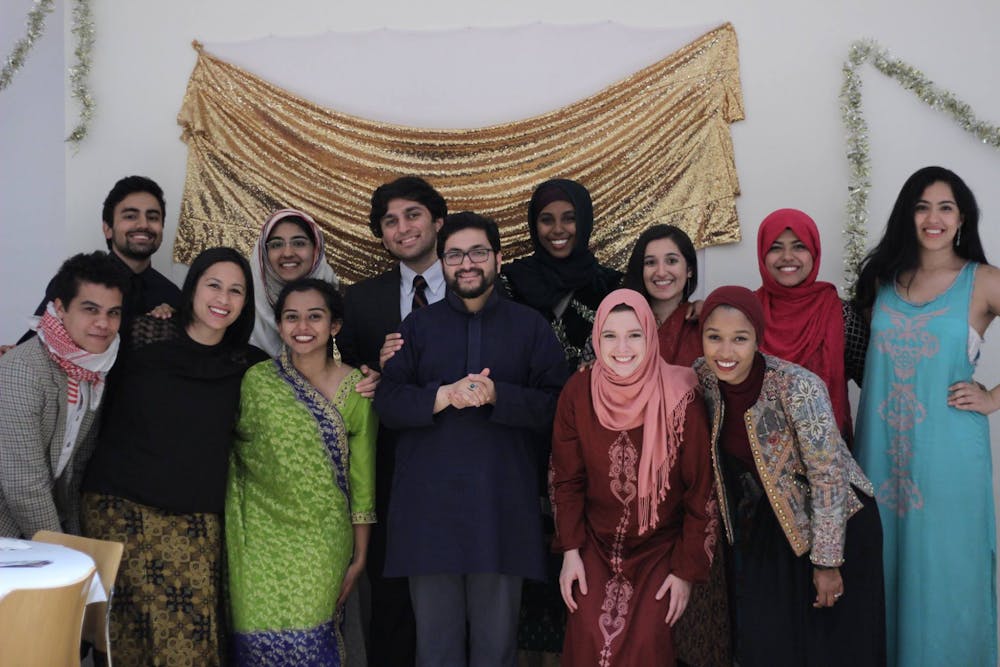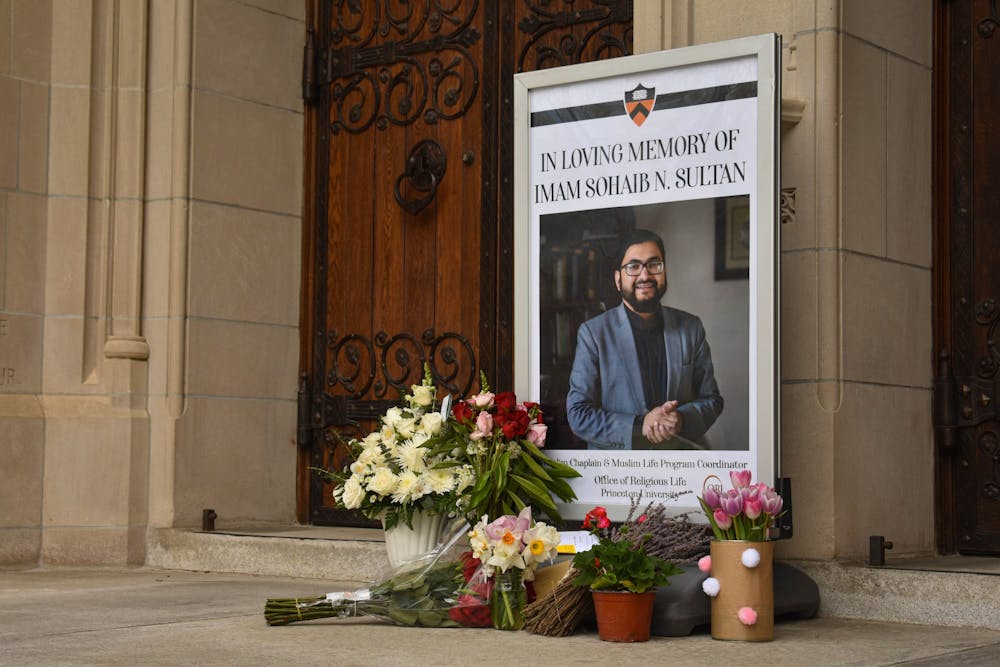University Muslim Life Coordinator and Muslim Chaplain Sohaib Nazeer Sultan, who helped forge a vibrant Muslim community at the University as one of the first full-time university Muslim chaplains in the United States, died of cancer at the age of 40 on Friday, April 16.
Sultan died after a year-long battle with a rare and severe case of cholangiocarcinoma, or bile duct cancer, his wife Arshe Ahmed announced through a Facebook post. A janaza, or funeral prayer, was held the next day at West Windsor Community Park and attended by hundreds of community members. It was followed by his burial at Greenwood Cemetery in Hamilton Township, N.J.
A graduate of Indiana University and the Hartford Theological Seminary, Sultan served as the first Muslim chaplain at Trinity College in Hartford, Connecticut, before joining the Office of Religious Life at the University as its first full-time Muslim Chaplain in August 2008. He was only the second full-time Muslim chaplain supported by a university institution in the United States.
Sultan and Ahmed married in 2005, after meeting through a mutual friend a year earlier.
“I found endearing his sense of humor, and just his laughter and his just being down to earth,” Ahmed recalled.
They moved to Princeton four years later, when Sultan took the position as Princeton’s Muslim Chaplain. In 2017, Sultan and Ahmed adopted their daughter Radiyya from Pakistan.
“I saw how he would be a beautiful father, he had these attributes, there was this part of him that I think wasn't fully tapped, but I knew it was there,” Ahmed explained. She noted Radiyya’s closeness to her father, stating “if I would be too strict with her, she would run to her abba and he would embrace her … and teach her with love and also joke around with her.”
Known to the campus community as “Imam Sohaib,” Sultan could often be seen around Murray-Dodge Hall in a kurta, a sign of his emphasis on male modesty, in addition to female modesty, in Islam.

He built a vibrant community for Muslims and non-Muslims alike and extended the reach of the community to those from beyond the University’s gates. Through the Muslim Life Program, Sultan organized weekly Jummahs (group prayers) on Fridays, served as a counsel and mentor to students, and nourished interfaith understanding throughout the University campus.
Muslim Student Association (MSA) Co-President Fawaz Ahmad ’22, who regularly coordinated with Sultan through his role within MSA, thought of Sultan as a mentor and reflected on his experience of being welcomed into the campus Muslim community by Sultan.
“I remember being just absolutely obnoxious meeting Imam Sohaib for the first time [during Princeton Preview]. Everyone else is trying to meet people and get a sense of Princeton, and I’m asking all these obnoxious questions and asking him what he thinks about this or that,” Ahmad recalled. “I almost kind of expected him to get a little pissed off at me, and he did not. He actually [displayed] the persevering patience and real kindness and openness towards the people in his community that I saw in his personality over the next three years.”

Muslim Life Coordinator Imam Sohaib Nazeer Sultan (front row, third from right) with the Muslim Student Association's Class of 2017 a few weeks before 2017 commencement.
Nabil Shaikh '17 for The Daily Princetonian

A prolific writer and public lecturer, Sultan traveled to numerous parts of the world to speak on Islam and Islamic cultures, as well as relations between the West and Muslims around the world. He is the author of “The Koran for Dummies,” published in 2004, and “The Qur'an and Sayings of Prophet Muhammad: Selections Annotated & Explained,” published in 2007.
Sultan also wrote a series of columns for Time Magazine during the holy month of Ramadan in 2014 to evoke reflection upon the Muslim faith and examine its role in relation to contemporary issues. He maintained a blog for those who wanted to follow him during his battle with cancer and read his reflections upon death.
For their role in developing and leading the campus Muslim community, Sultan and Ahmed were inducted as honorary members of the Class of 2020.
“During our four years, we saw Sohaib and Arshe’s family grow when they adopted baby Radiyya in the spring of 2017. Our class saw her grow into a beautiful, energetic, and playful little girl. Her lovely presence has given so much joy to many students over the past three years. We are proud to welcome Imam Sohaib and Arshe into the Class of 2020,” said the graduates.
Nabil Shaikh ’17, a graduate student in the School of Public and International Affairs (SPIA) who served as President of MSA when he was an undergraduate student at the University, has known Sultan closely since coming to the University as a first-year student in 2013 and praised Sultan’s tendency for openness and kindness.
“The way he spoke to you made you feel that you were the most important person in the room that he was speaking to,” said Shaikh. “He had a very distinctive laugh. Some might call it a cackle, a very good natured laugh. He was never above making himself the butt of the joke to grease the wheels of socializing amongst Muslim students.”
Shaikh added that Sultan compared the need for an open Muslim community to the Kaaba, the sacred Islamic House of God at the center of Masjid al-Haram in Mecca.
“He said, just like the Kaaba has seven gates that lead to it, you need to have multiple avenues of entrance into this community, not just the Princeton Muslim community, but any Muslim community in the country or around the world,” Shaikh recalled.
“From a personal standpoint, he's just such a warm and safe space. I feel like I could tell him anything … he's been my confidant over the years, he knows the worst parts of me and yet, I think the most amazing thing is that he makes you feel like you're so worthy and loved and capable of doing so much,” said Sabrina Mirza, assistant to the Muslim life chaplain and Sultan’s close friend.
Mirza recalled that in the week before Sultan’s passing, during her last one-on-one conversation with him, Sultan still insisted on discussing the struggles of one of his students.
“He was in the hospital, but he was like, this is so important. I want to make sure this thing is right,” Mirza said. “His work was so meaningful to him, the people that he served were so important to him, that nothing else pained him more, not even the physical pain, than not being of service to the people.”
Sultan is survived by his wife Arshe Ahmed, his daughter Radiyya Sultan-Ahmed, his parents, and his sister.
Two trusts have been set up in Sultan’s name; one for his family, which can be found here, and one to fund further Muslim Chaplaincy, which can be found here.








